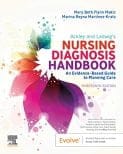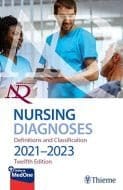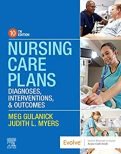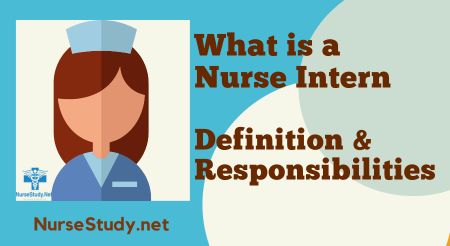A nurse intern is a healthcare professional who is still in training. They work under the supervision of a registered nurse, providing direct patient care and performing various clinical tasks. Nurse interns are typically nursing students who are looking for hands-on experience in a hospital or medical facility.
As a nurse intern, the responsibilities may vary depending on the facility and the specific program. However, some common duties may include taking vital signs, administering medication, dressing wounds, and assisting patients with daily activities. They may also be responsible for documentation, patient education, and communicating with other healthcare professionals.
Nurse internships are a great opportunity for nursing students to gain practical experience and develop their skills in a real-world setting. It allows them to apply the knowledge they have learned in the classroom to real patients and work alongside experienced nurses.
Moreover, nurse internships may improve their chances of getting hired after graduation, as many hospitals and medical facilities prefer to hire candidates with prior experience.
What is a Nurse Intern?
A nurse intern is a nursing student or a recent graduate of an accredited nursing program who works under the supervision of a registered nurse (RN) in a clinical setting, such as a hospital or clinic. The role of a nurse intern is to gain clinical experience and develop their skills in patient care.
Nurse interns perform a variety of clinical and health-related duties, such as taking vital signs, collecting specimens, and assisting with hygiene and eating. They also assist the nursing staff with patient care and perform clerical duties as needed.
To become a nurse intern, one must be enrolled in or have graduated from an accredited nursing program. They must also have a nursing license or be eligible to obtain one. Many nursing students seek out nurse internships to gain clinical experience and improve their resumes.
Nurse internships are typically paid positions, although the pay may be lower than that of licensed nurses. The length of a nurse internship varies, but is typically several months long.
Nurse interns work closely with RNs and other healthcare professionals, and may have the opportunity to specialize in a particular area of nursing, such as critical care, medical-surgical, oncology, or labor and delivery.
Nurse internships are often advertised on job boards and through professional networking, and may also be offered through nursing schools or hospitals. Some nurse internships may also be available as volunteer opportunities.
Overall, nurse internships provide valuable clinical experience and help nursing students and recent graduates develop their skills and qualifications for future nursing positions.
The American Nurses Association and organizations such as the Mayo Clinic offer nurse internship and externship programs to help nursing students and recent graduates gain clinical experience and improve their resumes.
Qualifications and Requirements
To become a nurse intern, there are certain qualifications and requirements that must be met. Some of the most common qualifications include:
- A high school diploma or equivalent.
- Enrollment in or completion of a nursing program.
- Basic life support (BLS) certification.
- Good communication skills.
- Ability to work well in a team.
- Strong critical thinking and problem-solving skills.
- Attention to detail.
In addition to these qualifications, nurse interns must also meet certain requirements. These requirements can vary depending on the specific program or institution, but some common requirements include:
- Completion of an application and interview process.
- Background check and drug screening.
- Immunization records and health clearance.
- Compliance with dress code and professional standards.
- Willingness to work a flexible schedule, including weekends and holidays.
- Commitment to the program’s duration, which can range from a few weeks to several months.
It’s important to note that while nurse internships can be a great way to gain hands-on experience and improve your chances of getting hired as a registered nurse, they are often highly competitive. Therefore, it’s important to have a strong academic record, relevant experience, and a well-written application to stand out from other applicants.
Overall, becoming a nurse intern requires a combination of qualifications and requirements that demonstrate a commitment to the nursing profession and a willingness to learn and grow as a healthcare provider.
What Do Nurse Interns Do?
Nurse interns are nursing students or recent graduates who are looking to gain more clinical experience in a hospital or other healthcare setting. Under the supervision of a registered nurse, they perform basic patient care tasks, such as taking vital signs, assisting with hygiene, mobility, and other activities of daily living.
During their internship, nurse interns are exposed to a variety of specialties, including critical care, medical-surgical, oncology, labor and delivery, and nursing home care. They learn how to work with patients of all ages and backgrounds, and develop the clinical skills necessary to become successful nurses.
Nurse interns are an essential part of the healthcare team, providing valuable assistance to registered nurses and other healthcare professionals. They help to ensure that patients receive the highest quality of care possible, and they learn how to work collaboratively with other members of the healthcare team to achieve this goal.
In addition to providing patient care, nurse interns also have the opportunity to observe and participate in various healthcare procedures and treatments. They may assist with wound care, medication administration, and other medical procedures, and they learn how to communicate effectively with patients and their families.
Overall, nurse interns play a vital role in the healthcare system, helping to ensure that patients receive the best possible care while also gaining valuable clinical experience that will prepare them for their future careers as registered nurses.
Benefits of Being a Nurse Intern
Nursing internships offer a variety of benefits to nursing students and recent graduates. Here are some of the most significant benefits:
Clinical Experience
Nursing internships provide a unique opportunity for students to gain hands-on clinical experience in a real-world healthcare setting. Interns work alongside experienced nurses and healthcare professionals, providing direct patient care and performing a variety of nursing tasks. This experience can be invaluable in helping students develop the skills and confidence they need to succeed as nurses.
Professional Networking
Nursing internships also provide an opportunity for students to network with other healthcare professionals. Interns work closely with nurses, doctors, and other healthcare providers, and may have the opportunity to observe and participate in interdisciplinary team meetings. This exposure can help students build relationships with potential employers and colleagues, and may lead to future job opportunities.
Career Advancement
Nursing internships can also help students advance their careers. Many nursing internships are paid positions, which can provide students with financial support while they gain valuable experience. Additionally, some internships may lead to full-time job offers after graduation, or may provide students with the skills and experience they need to pursue advanced nursing degrees.
Personal Growth
Finally, nursing internships can be a rewarding and fulfilling experience for students. Interns have the opportunity to make a real difference in the lives of patients, and to develop a deeper understanding of the healthcare system. This experience can help students grow both personally and professionally, and can prepare them for a successful career in nursing.
Overall, nursing internships offer a wide range of benefits to nursing students and recent graduates. From clinical experience and professional networking to career advancement and personal growth, nursing internships can be a valuable investment in a student’s future.
How to Become a Nurse Intern
Becoming a nurse intern is an excellent way for nursing students to gain hands-on experience in a clinical setting. To become a nurse intern, one must follow a few steps:
- Obtain a Nursing Degree: To become a nurse intern, one must have a nursing degree from an accredited nursing program. This degree provides the necessary knowledge and skills required to work in a clinical setting.
- Obtain Transcripts: Transcripts are an essential part of the application process. Nursing students must have their transcripts ready to show their academic achievements and qualifications.
- Volunteer Opportunities: Volunteering in a healthcare facility is an excellent way to gain experience and make connections. Many hospitals and clinics offer volunteer opportunities that can help nursing students gain valuable experience.
- Nursing Externships: Nursing externships are short-term programs that allow nursing students to work alongside experienced nurses in a clinical setting. These programs provide hands-on experience and can help students gain valuable skills.
- Online Job Boards: Online job boards are an excellent resource for nursing students looking for internships. These job boards list internships and other job opportunities in healthcare facilities.
- Professional Networking: Networking is an essential part of finding an internship. Nursing students should attend job fairs, conferences, and other events to meet professionals in the field and learn about potential internship opportunities.
Overall, becoming a nurse intern requires dedication, hard work, and a willingness to learn. By following these steps, nursing students can gain the experience they need to succeed in their careers.
Finding a Nurse Internship
Finding a nurse internship can be a challenging task, but it is essential to start building practical experience in the nursing field. Here are some tips to help you find a nurse internship:
1. Check Online Job Boards
One of the best places to find a nurse internship is through online job boards. Many job boards allow you to filter your search by location, job type, and experience level. Some popular job boards for nursing internships include Indeed, Glassdoor, and ZipRecruiter.
2. Contact Clinics and Hospitals
Another way to find a nurse internship is by contacting clinics and hospitals directly. Reach out to the nursing staff or managers at your local healthcare facilities and inquire about any available internships. This approach can help you build connections in the nursing field and increase your chances of finding an internship that aligns with your interests.
3. Consider a Nurse Externship
A nurse externship is a program that allows nursing students to gain hands-on experience in a clinical setting. Although nurse externships are similar to internships, they are typically shorter in duration and focus on providing students with practical experience in a specific area of nursing. Many hospitals and healthcare facilities offer nurse externship programs, so be sure to research these opportunities as well.
4. Attend Career Fairs
Attending career fairs is another great way to find nurse internship opportunities. Many nursing schools and healthcare organizations host career fairs where you can meet with recruiters, learn about job openings, and network with other nursing professionals.
In conclusion, finding a nurse internship requires a proactive approach. By checking online job boards, contacting clinics and hospitals, considering a nurse externship, and attending career fairs, you can increase your chances of finding an internship that aligns with your career goals.
Nurse Intern vs. Nurse Extern
Nurse interns and nurse externs are both important roles in the nursing profession. They both provide valuable assistance to licensed nurses and help to improve patient care. However, there are some key differences between the two roles.
Nurse Extern
A nurse extern is a nursing student who has completed at least one clinical rotation and is in the process of completing their nursing education. As a nurse extern, their primary role is to shadow a licensed nurse and assist with basic tasks such as taking vital signs and collecting specimens. They essentially fulfill the role of a nursing assistant.
Nurse Intern
A nurse intern, on the other hand, is a nursing student who has completed their nursing education and is in the process of obtaining their nursing license. As a nurse intern, they are treated like a hospital employee and are responsible for performing nursing tasks similar to those they did during their clinical rotations. They have a higher level of responsibility and are expected to have more advanced clinical skills and experience.
Key Differences
The table below summarizes the key differences between nurse interns and nurse externs:
| Nurse Intern | Nurse Extern |
|---|---|
| Completed nursing education | In the process of completing nursing education |
| In the process of obtaining nursing license | Not yet eligible for nursing licensure |
| Higher level of responsibility | Shadowing role |
| Expected to have advanced clinical skills and experience | Focused on basic tasks such as taking vital signs and collecting specimens |
In conclusion, both nurse interns and nurse externs play important roles in the nursing profession. Nurse externs provide valuable assistance to licensed nurses and gain experience in basic patient care tasks, while nurse interns have completed their nursing education and are in the process of obtaining their nursing license, providing more advanced clinical skills and experience.
See Also:
Best Nursing Books and Resources
These are the nursing books and resources that we recommend.
NurseStudy.net is a participant in the Amazon Services LLC Associates Program. Included below are affiliate links from Amazon at no additional cost from you. We may earn a small commission from your purchase. Please see our Privacy Policy

The Nursing Diagnosis Handbook E-Book: An Evidence-Based Guide to Planning Care
This is an excellent reference for nurses and nursing students. While it is a great resource for writing nursing care plans and nursing diagnoses, it also helps guide the nurse to match the nursing diagnosis to the patient assessment and diagnosis.
This handbook has been updated with NANDA-I approved Nursing Diagnoses that incorporates NOC and NIC taxonomies and evidenced based nursing interventions and much more.

NANDA International Nursing Diagnoses: Definitions & Classification, 2021-2023
All introductory chapters in this updated version of a ground-breaking text have been completely rewritten to give nurses the knowledge they require to appreciate assessment, its relationship to diagnosis and clinical reasoning, and the goal and use of taxonomic organization at the bedside.

Nursing Care Plans: Nursing Diagnosis and Intervention
It contains more than 200 care plans that adhere to the newest evidence-based recommendations.
Additionally, it distinguishes between nursing and collaborative approaches and highlights QSEN competencies.


